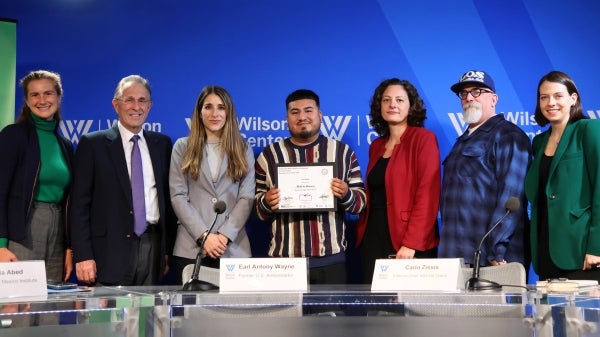There was no pandemic when National Handshake Day was conceived.
June 25 marks the 15th anniversary of the commemorative day, dedicated to the history and celebration of one of the common greetings shared between two people, especially in Western cultures.
Many people think the handshake might go the way of the curtsy in light of COVID-19. However, history shows that what your grandfather taught you will always endure — nothing substitutes for a firm grip and a look in the eyes.
“The fact that there’s a day named after the handshake demonstrates the importance human beings place on cooperation and solidarity,” said Laura Guerrero, a professor in Arizona State University's Hugh Downs School of Human Communication. “The handshake is a very positive symbol.”
The origin of the handshake is murky, but Guerrero said many historians believe it dates back to ancient Greece. She said the handshake then was used as a way to convey peaceful intention while at the same time proving they weren’t hiding a dagger up the sleeve or holding a weapon.
The anecdotal evidence was supported and illustrated on art, vases, gravestones and stone slabs of that era.
The modern handshake has been equally hard to trace, though most believe it was popularized by 17th-century American Quakers who preferred it over bowing, curtsying or tipping a hat.
“A lot of people who came to America were unhappy with the social hierarchy structure in Europe, especially in Britain,” Guerrero said. “It became a sign of equality to shake hands.”
The handshake also filled a cultural need, said Judith Martin, professor emerita at the Hugh Downs School of Human Communication.
“The handshake is there for a reason, especially if you’re trying to establish a business or personal relationship,” Martin said. “I’ve been in situations before where I’ve tried to be culturally sensitive and bow and the other person is trying to shake my hand. That demonstrates both sides are trying to accommodate.”
Not all cultures share the same greeting rituals. In Japan, people bow. In Thailand, they practice the “wâi”, a slight bow with the palms pressed together in a prayer-like fashion. It’s similar to “namaste” in India, which is a folded hand gesture and a gentle bow of the head and neck. In France, they employ “la bise” — an air kiss on each side of the cheek. (The French hated the handshake and formed a society in 1884 to abolish it, calling it a “vulgar English innovation.”)
The friendly gesture has developed over time and has often been interpreted as a person’s physical signature. The handshake can be interpreted as passive, aggressive, assertive or reflecting a lack of interest in interacting. It could also be interpreted as a power play.
But perhaps the handshake’s greatest attribute is its resilience. Its survived wars, revolutions, pandemics, plagues, viruses and other medical maladies, according to Guerrero.
“It’s interesting because the handshake is like a movement and is cyclical,” Guerrero said. “Even before COVID-19 hit, men in the United States were the first to do the fist bump. Now that’s evolved into an elbow bump because of the pandemic … history shows that it comes back in some form or another.”
Martin said the need for human contact and demonstrating affection is too strong for the handshake not to make a comeback.
“If the handshake doesn’t come back in the same exact way, there will be a variation of it in some form or another,” Martin said. “It’s awkward for now, but it won’t always be that way. We’ll find ways to improvise because this pandemic won’t last forever.”
Top: Photo illustration by iStock/Getty Images
More Arts, humanities and education

Kaleidoscope short film contest inspires powerful binational filmmaking in its second year
“We come to this country not to steal anybody’s jobs but to take advantage of the opportunities that the rest ignore. We’ve been taking care of the American soil for many years. But our hands will…

ASU's Neal Lester reflects on life, death of poet Nikki Giovanni
When Neal Lester heard on Monday that poet and activist Nikki Giovanni had died, the news hit hard.Lester, the founding director of Arizona State University’s Project Humanities and a Foundation…

Learning by stepping outside
By Adriana MaestasAmid a world increasingly captivated by all things digital, more than 200 Arizona teachers have crafted immersive educational experiences that nudge students to step away from their…
